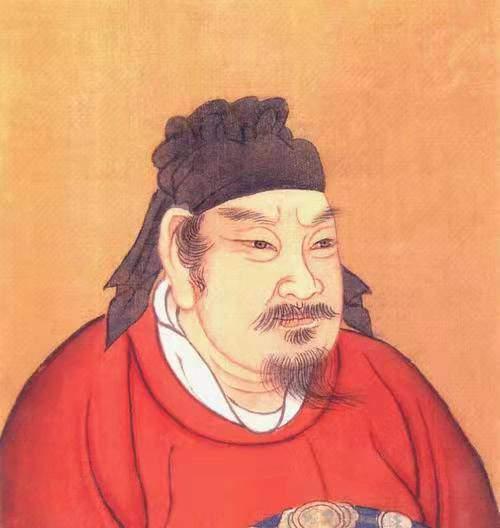Zhou Yafu was the son of Zhou Bo, the founding hero of the Western Han Dynasty, and inherited his father's title two years after Emperor Wen of Han.

In the twenty-second year of Emperor Wen of Han, in 158 BC, the Xiongnu repeatedly harassed the northern border. In order to defend the Jing Division, Emperor Wen of Han sent three armies to garrison near Chang'an City. One day, Emperor Wen of Han went to the military camp to treat the soldiers, he first went to the two armies, saw that it was the emperor's carriage, and directly released it, without informing the general.
However, When Emperor Wen of Han arrived at Zhou Yafu's barracks, he was stopped at the door, and the generals in the army knew that tianzi was visiting, but they insisted on holding the camp, saying: Without the order of General Zhou Yafu, no one can open the gate of the camp. It was not until Emperor Wen of Han sent emissaries with runes to inform Zhou Yafu that he was able to enter. Zhou Yafu, dressed in armor, came out to greet Emperor Wen of Han, and ruled the army strictly and meticulously, which made Emperor Wen of Han very satisfied.
On the occasion of Emperor Wen of Han's death, he entrusted Liu Qi, the Emperor of Han Jing, to Zhou Yafu. In the third year of the Han Jing Emperor, in 154 BC, Liu Hao, the king of Wu, united with other princely states to set off the Rebellion of the Seven Kingdoms. Emperor Jing of Han promoted Zhou Yafu to the rank of Lieutenant and went to quell the rebellion. At this time, King Wu's army was attacking the State of Liang. Zhou Yafu knew that King Wu's army had strong frontal combat effectiveness and could not compete with it, so he detoured and marched, taking Lantian and leaving Wuguan, quickly defeating a small part of the enemy army.
At this time, the State of Liang was besieged by the rebels, but Zhou Yafu ignored it and led his troops to garrison Changyi, but could not hold out. He ignored the orders of emperor Jing of Han, but secretly cut off the enemy's grain routes. For a long time, the rebels had no food reserves and planned to fight a quick battle, so they attacked Zhou Yafu, but Zhou Yafu insisted on not fighting.
Because of the lack of food, the rebels had to retreat, And Zhou Yafu took the opportunity to send elite troops to pursue, and won a complete victory, and Liu Hao was also beheaded in the rebel army. This is where the wind of Zhou Yafu is derived. He administered the army strictly, was quite determined, was good at using troops, and was a rare and good military general. However, the King of Liang was very resentful of Zhou Yafu, who did not support him.
However, Zhou Yafu did not understand politics and often spoke bluntly, which made Emperor Jingdi of Han very unhappy. He opposed the deposing of the crown prince by the Han Jing Emperor and the title of Marquis of Han Jing, and had a straight personality and was outspoken, but it was precisely because he was too straight, coupled with the fact that King Liang always said bad things about him when he entered the palace, Zhou Yafu was slowly alienated by the Han Jing Emperor and resigned from his official position in frustration.
His son, seeing that he was old, secretly bought five hundred armor shields and prepared them for his funeral. However, at that time, it was not allowed to buy and sell Jia Dun privately, and Zhou Yafu's son paid the domestic helpers with little money and was urged to be tight, and was denounced by the resentful servants.
The investigator called Zhou Yafu to inquire about the situation, but Zhou Yafu did not know and did not know how to answer. The investigators thought he was gambling with the emperor and reported it to Emperor Jingdi of Han. Emperor Jingdi of Han was very angry and handed Zhou Yafu over to the supreme magistrate, Ting Wei, for trial.
Lieutenant Ting asked, "Why did the prince rebel?" ”
Zhou Yafu replied: "My son bought funeral goods, how can I say that I am plotting rebellion?"
Lieutenant Ting said sarcastically, "If you don't rebel on the ground, I'm afraid you will rebel underground!" ”
Zhou Yafu could not bear such humiliation, so he committed suicide, was stopped by his wife, and this time humiliated by the court lieutenant, so he went on a hunger strike to protest, and five days later, he was starved to death by vomiting blood.